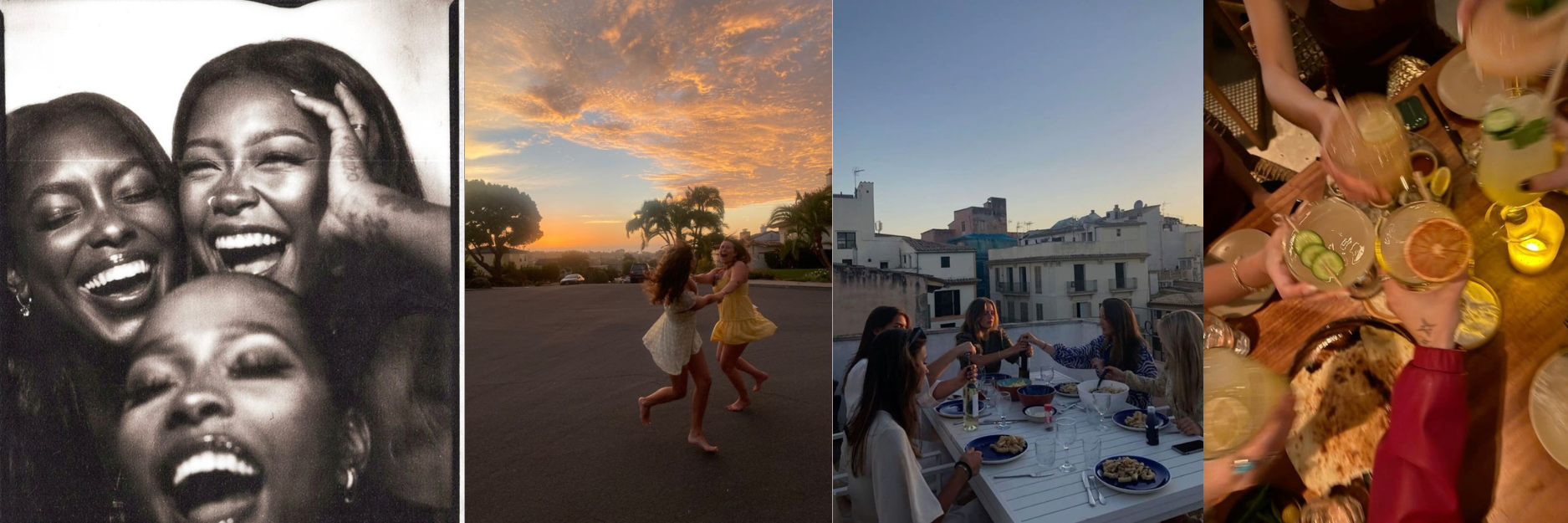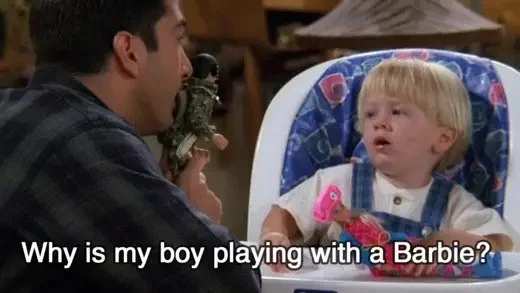The Pendulum has Swung: Dating in an Era of MAGA and Male Loneliness
I've always been an opinionated woman, a trait that often carries a negative connotation. However, I believe being opinionated is a positive quality, as long as your opinions are supported by well-constructed and logical arguments.
From my experiences in dating, I've noticed that many men claim to be drawn to opinionated, intelligent women, admiring their boldness and strong convictions. However, women who firmly stand by their beliefs are often resistant to being broken, persuaded, or manipulated. They respond with well-thought-out arguments that don’t always align with what men want to hear.
In this era marked by the second term of Trump, the unraveling of Roe v. Wade, the rise of trad-wives, male influencers like Andrew Tate, and MAGA-aligned billionaires like Elon Musk, I've observed a significant shift. The pendulum has swung, and there’s no stopping it—young men are gravitating toward right-wing conservatism with the fervor of cult followers drawn to Kool-Aid.
I believe the pandemic played a significant role in this shift. It brought about a surge of disinformation, an explosion of podcasts created by bored men, and a deepening of male loneliness. The roots of male loneliness had already been planted before the pandemic, with terms like "incel" (involuntarily celibate) circulating online, but the pandemic amplified these issues dramatically.
During the pandemic, we all experienced loneliness and isolation, cut off from the daily social interactions that bring connection and meaning to our lives. This took a toll on society's social skills and our ability to reconnect in meaningful ways. The pandemic revealed many truths to me, but in its aftermath and the years that followed, two stood out: the blossoming of female friendships and the profound, shadowy depths of male loneliness.
I became really close to my girlfriends during the years following the pandemic. We craved social interaction, so we rebuilt this nurturing community where we supported one another, sending care packages, traveling for birthdays, and sharing hearty meals. In the content I consumed through social media, it seemed like the meaning of female friendship blossomed after the pandemic. Women were discovering that they could find immense refuge, companionship, support, and care in their friendships with other women. Men became less central to our lives as we no longer depended on them for emotional or financial support.
This is where the pendulum has swung—what PBS and the New York Times have termed the male "friendship recession." As men age, their circle of close, dependable friends tends to shrink. Having been part of both male- and female-dominated friend groups, I’ve observed stark differences in how they offer support. My female friends nurture one another through acts of service, physical affection, and quality time. In contrast, my male-dominated friend groups often default to a quick pat on the back and a casual “I’m here for you, bro.” I don’t believe these differences are biological; rather, they stem from the way we were socialized during adolescence.
From a very young age, little girls are handed dolls and told “You are going to be a mommy one day.” As early as age two, they are preconditioned to take on the responsibility of caring for another human life. They are taught to nurture, empathize, and shoulder both the emotional and physical responsibility for others. It’s a heavy and emotionally taxing burden to place on a child so young.
Boys, on the other hand, are often not taught this. During my five years as a nanny, I observed this dynamic firsthand. One moment that perfectly illustrates this is an episode of Friends where Ross panics because his ex-wife lets their son play with a Barbie doll. Unlike girls, boys are not burdened with the same binding emotional maturity and responsibility from a young age. Instead, they are given the freedom of choice and the liberating message, “You can be anything.” Anything, that is—except feminine.
This conditioning begins at an incredibly young age and is deeply tied to society's disdain for anything feminine. The association of femininity with weakness, excessive emotion, and fragility leads to the ostracization of any man who exhibits "traditionally feminine" traits. Emotions, nurturing, and care for others are labeled as feminine, and thus, as signs of a weaker man. As a result, male friendships often suffer, lacking the essential nurturing qualities needed for deep and meaningful connections.
Because we are in a day and age where women can be financially independent, and are now finding emotional fulfillment through deep female friendships, men are no longer essential. We can be selective about who we want to date. Why tolerate a man who makes misogynistic jokes and disrupts your peace when you have financial independence and the support of fulfilling friendships with other women?
Men are lonely and lacking support systems and meaning. Gen Z men, in particular, are flocking to find support systems in their social circles, with many turning to Christianity or the cult followings of Donald Trump, Elon Musk, and Andrew Tate. These patriarchal institutions and icons give them meaning, make them feel seen, and make them feel less alone.
The epidemic of male loneliness has also seeped into the dating pool. While I don’t have an extensive dating history, I’ve noticed a shift—men increasingly leaning into these outdated patriarchal values, feeling embolden by these patriarchal icons.
“I just want a big piece of land and a wife who doesn’t want to work,” one date said to me as we walked the cold streets of Seattle after going out.
“Women are just biologically more caring and emotional,” Another guy stated, as he tried to convince me why “according to science” women are meant to be in caretaking fields.
I went on another first date that seemingly went well. That was until his seemingly neutral, "I'm-not-that-political" stance transformed into a conversation praising Elon Musk, which eventually led to him admitting that he found misogyny, racism, and transphobia amusing.
I have heard endless accounts of women who are struggling with dating in this era. I don’t foresee a future where it gets easier, until men catch up emotionally, maturing and recognizing that quote-on-quote feminine features like being empathetic, nurturing, and caring are not weak, but essential traits for all human beings.






